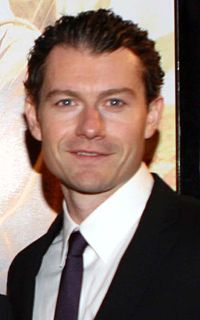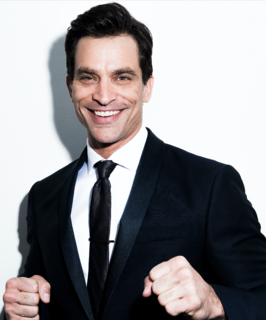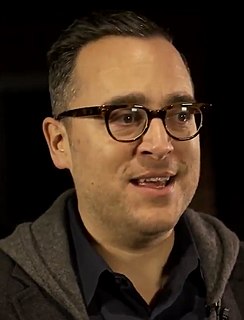A Quote by Ozzy Osbourne
I never received any encouragement. My father would work nights and my mother would work during the day. We were expected to get a job with a trade.
Related Quotes
It was dirty and hot, and you're on a horse, all day. It was physical work, but there wasn't one of us - cast or crew - who didn't have a smile on our face. Even when it got real hard and tempers would rise because things would get difficult and the day would get late, we all loved the job and loved doing it. When you finished that day of work, everyone was looking around and going, "Yeah, that was a good day, man."
I believe the person who was out conquering the world, who was out fighting in the world were our fathers, so to have them come... I adored my father more than anyone in the world, but my father had more advice on work policies and how to get a job and how to survive in the work environment than my mother because my mother never worked outside of the home. So I think the support of fathers is very important.
People are most shocked and most in disbelief that I go to the office every day. I have a job. When I'm not acting on a movie, I go to work, first thing in the morning. I'm at work at 8 o'clock in the morning, and I get home from work at 7 o'clock at night. I treat my job like a job, and I work at it. I think people would probably be most surprised, if I ever calculated up the number of hours I work on an average week and published that. If it was ever documented, I think people would be shocked to find out.
While my parents never had the time or money to secure university education themselves, they were adamant that their children should. In comfort and in love, we were taught the joys of knowledge and of work well done. I only regret that neither my mother nor my father could live to see the day I would accept the Nobel Prize.
I would work until I got stuck, and I would put it down and pick up something else. I might be able to take a 20-minute nap and get to work again. That way, I was able to work about 10 hours a day... It was important to me to work every day. I managed to work on Christmas day, just to be able to say I worked 365 days a year.
I feel very grateful. I wasn't raised with money. My parents were schoolteachers; I was raised on a small farm. It never dawned on me that I would have a job that someone would pay me to do. Much less a job like this. It would be ridiculous if I had any complaints about it. And look - I've had the opportunity to learn an entirely new set of skills, and I'm bringing them to the work I'm doing now in filmmaking.
Work ethic is one of the biggest things my father taught me. That man worked like every day, every day, 9 to 5, well 9 to 9 in his case, but he would treat it as if it was a 9 to 5 job. He would clock in. He would put in his hours. That is how you can write those you know incredibly long books that unfortunately there is not much market for anymore, but that is also how you can explore an idea on a deeper level than we get in our media surface these days. It's tough.
I learned respect for womanhood from my father's tender caring for my mother, my sister, and his sisters. Father was the first to arise from dinner to clear the table. My sister and I would wash and dry the dishes each night at Father's request. If we were not there, Father and Mother would clean the kitchen together.
Medals are great encouragement to young men and lead them to feel their work is of value, I remember how keenly I felt this when in the 1890s. I received the Darwin Medal and the Huxley Medal. When one is old, one wants no encouragement and one goes on with one's work to the extent of one's power, because it has become habitual.
My father never got films to our dinner table. It was never the case with us as well that our father works in films, and we know so many actors. It was like him going to work like any other father. In fact, my school friends would ask me if I have met a certain actor, and I would tell them that I haven't, which they found strange.




































